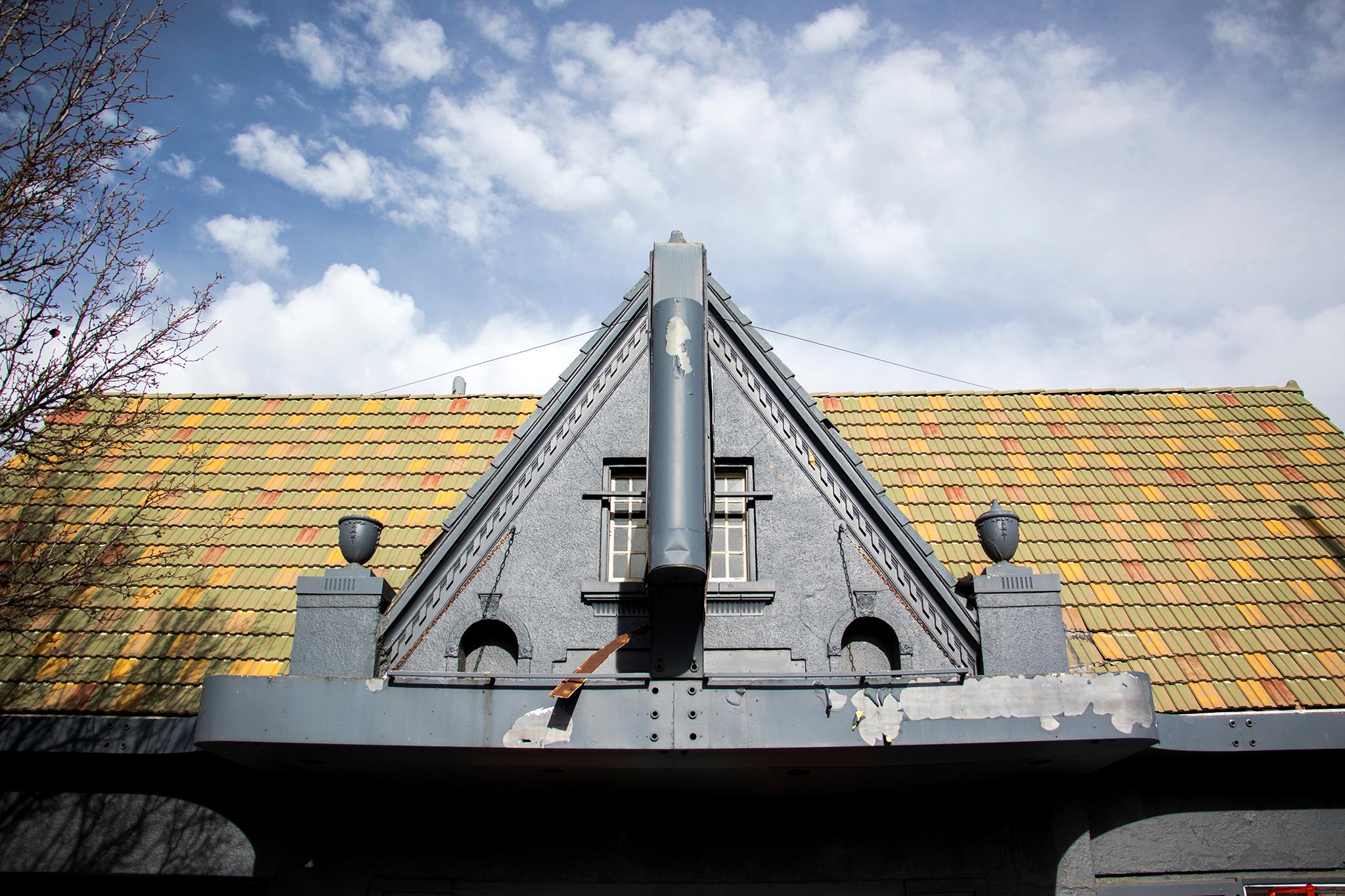The exterior of 4977 W. 44th Ave., a gray-blue old building with a multi-colored shingled roof in Berkeley, barely betrays what's inside.
A small marquee sign hints at the building's past, but it's an otherwise unassuming structure -- an old, pretty enough building that fits nicely into the neighborhood of bungalows.
Inside, it's almost another world. It's a crumbling, dirty window into 1926: an ornately gold-trimmed stage, gold-trimmed murals, colorful tiling, arched doorways, colorfully painted plaster and an orchestra pit boarded up with wood. There's a tiny room out front for a box office, a projection room on the second floor and an entire apartment, complete with a bathroom -- clawfoot tub included -- on the third floor. Jerri Theil, a Denver music scene mainstay who is working on the project, estimates the theater could hold 350 to 400 people.
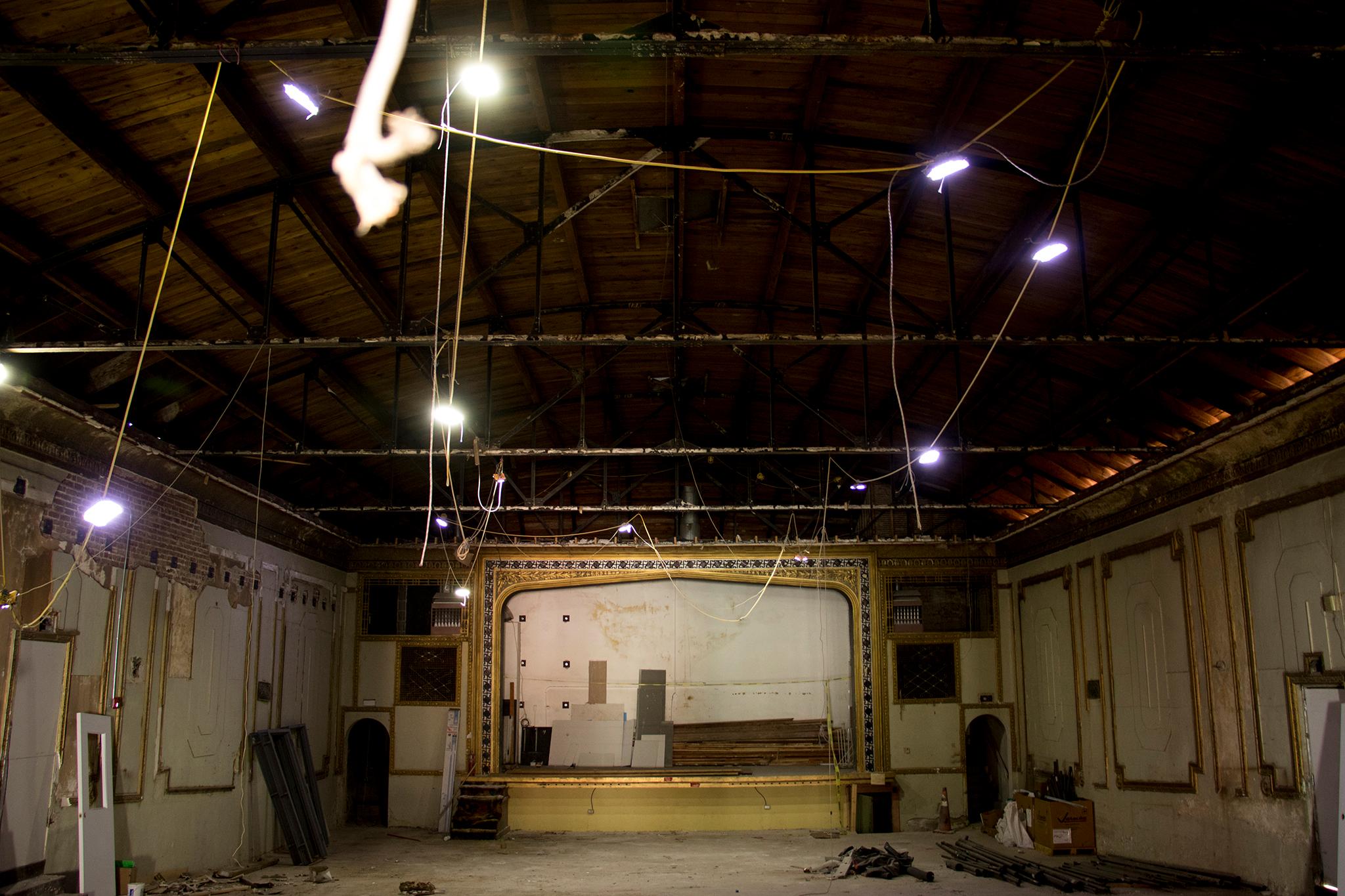
Theil, who came up under iconic Colorado promoter Barry Fey and once ran the Bluebird and Ogden theaters, didn't know what was there. When she first saw the building, she didn't understand why developer Ken Wolf had brought her there.
"I went out there and it was this weird looking building, a dollhouse looking space, and I was like, 'What are you showing me?'" she said. "I went into it and I was floored. It was the most gorgeous theater."
"I was like, 'There is no way you can condo this or put a micro brewery in it,'" she added. "You have to build it back into a theater."
So that's what they're going to do.
The history of the theater is something of a well-kept secret, too.
Go ahead. Google it. The Yates Theater is a mystery.
Here's what we know about its recent history: Its last owner was Frank Schultz, owner of the Soiled Dove Underground and Tavern Hospitality Group. According to Westword editor and co-founder Patricia Calhoun, he intended to turn it into a venue and lease the storefronts.
Schultz bought it from Debbie Lease and Erik Satie, who owned it for just two years with the intention of turning it into a jazz club.
"When we bought it, we had big dreams for the theater. We're musicians," Lease told Denverite. They ended up selling it because the dreams cost too much. And despite their own efforts, they couldn't learn anything about its history, either.
Lease and Satie bought it from a man who owned it for almost 50 years, she said. Under his ownership, it was a piano shop, and Lease and Satie had to buy his inventory of 66 pianos and sell them off themselves. (Paper evidence of that history can be found on the floors inside the old theater now.)
According to Denver property records, the piano shop owner was Daniel Ferguson. He sold it to Lease and Satie for $575,000. They sold it for $1.5 million in 2014, and the final sale in 2016 brought in $2.6 million.
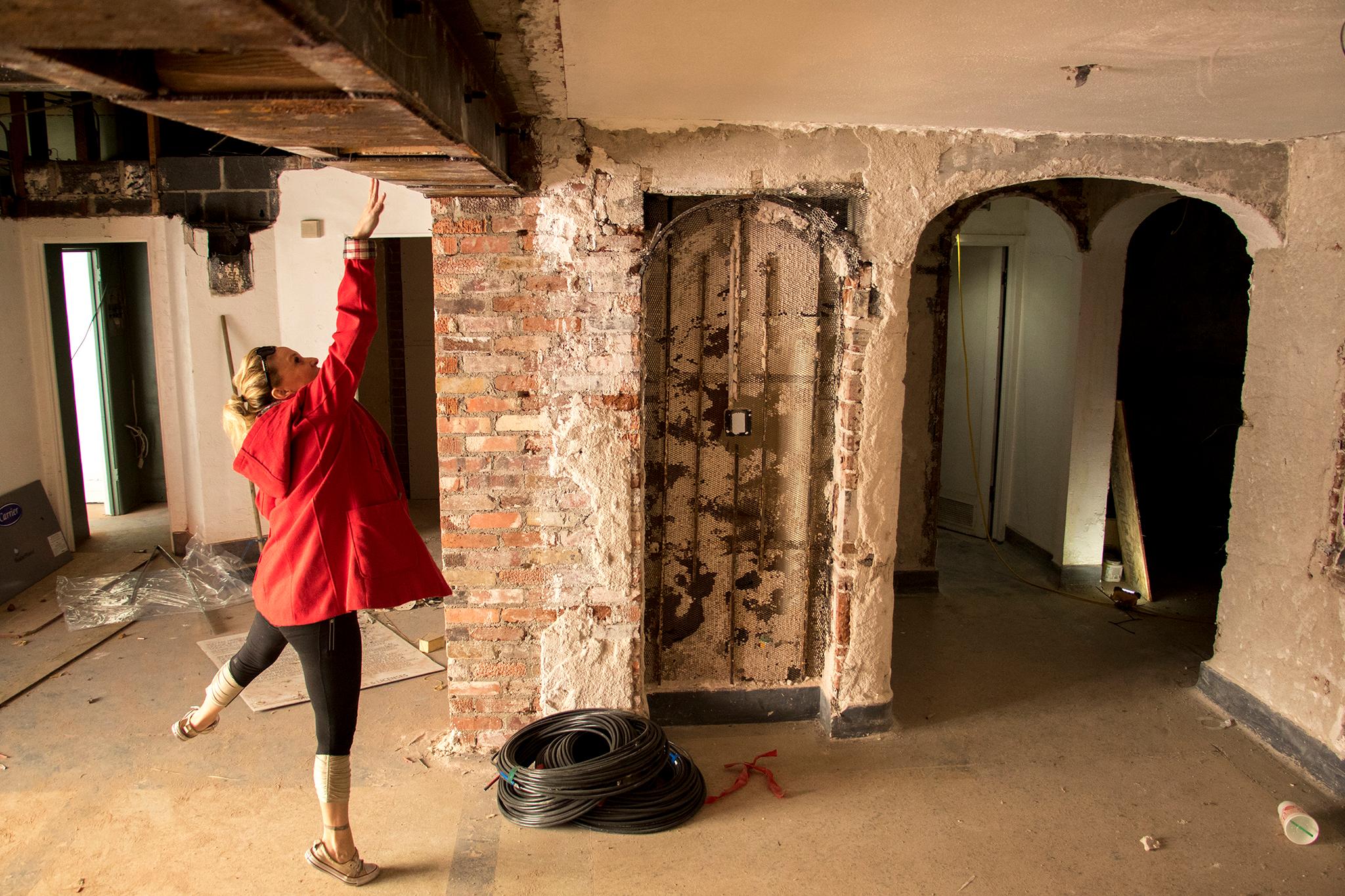
And that's about where the trail goes cold. A search for the theater in the Denver Public Library's digital archives turned up nothing. Theil said it was built as a silent movie theater by the Marx Brothers -- and indeed there's a projection booth with a toilet and sink inside. An entry on Cinema Treasures heavily cites Calhoun's 2014 story, and also says it was renamed the Rex Theatre in 1931 and may at one time have been called the Coronet Theater.
Denverite asked Historic Denver Executive Director Annie Levinsky what the story was, but she and her staff couldn't come up with any more than we did.
Theil said she wants to pursue a historic designation.
"We are very interested in what will happen, as the theater is quite unique compared to other 'neighborhood' theaters of the streetcar era and would be wonderful if restored and reused," Levinsky said. "It is very likely eligible for landmark designation at either the local or state level, and if an owner pursued a designation the theater renovation could take advantage of the commercial state tax credit."
This is an unofficial assessment, though, as she hasn't run it by the city's Landmark Preservation Commission.
(Do you know more about the history of the Yates Theater? Do you have old photos? Email [email protected].)
Before work can truly begin, the theater needs a liquor license. And before that can happen, the project needs neighborhood support.
Theil brought the project to Berkeley-Regis United Neighbors during a meeting Tuesday night. They're generally supportive of the theater's restoration -- especially if the alternative is possible destruction -- but they have concerns, primarily about traffic and parking.
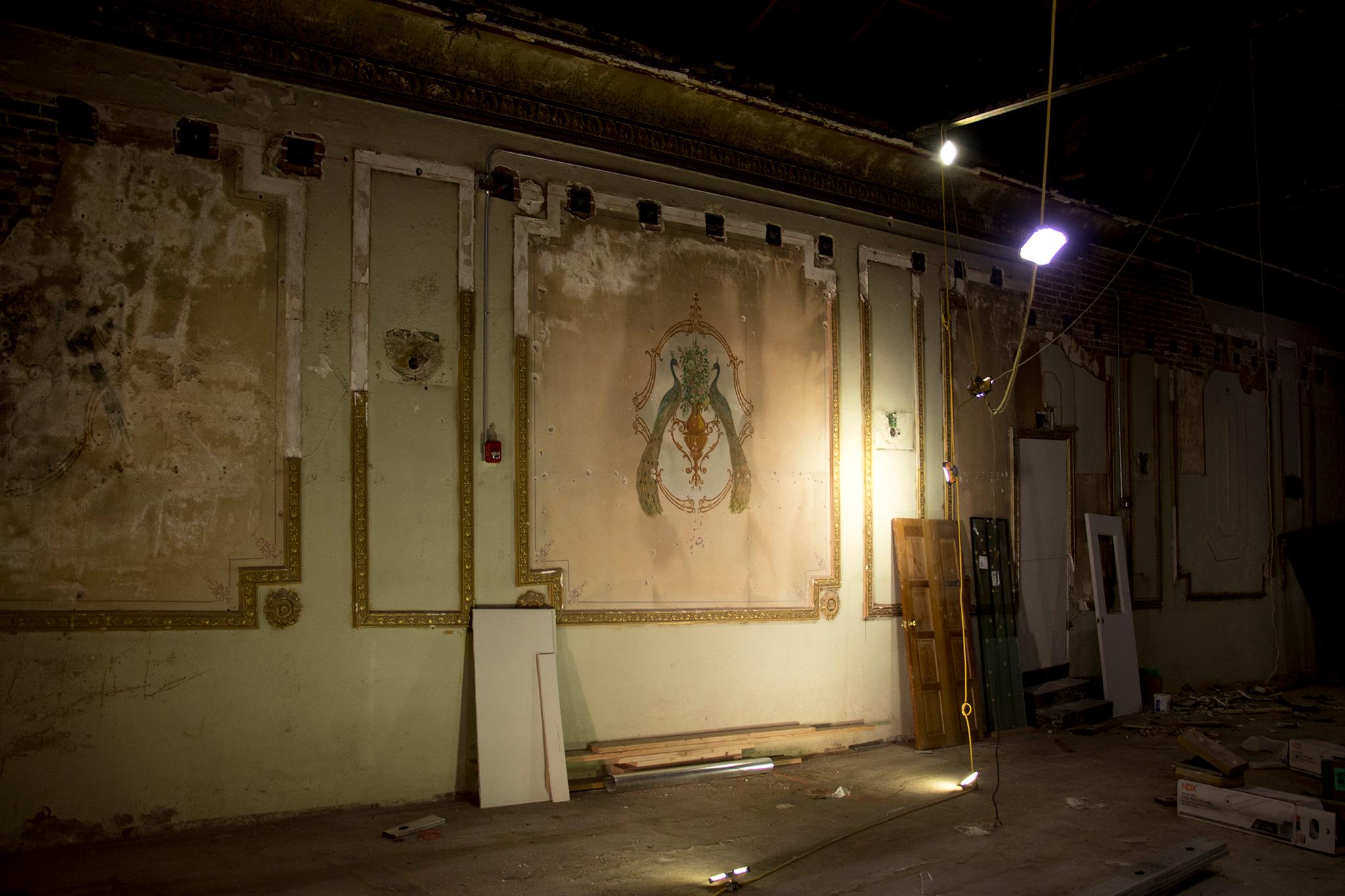
"I think one of the neighbors made a really good point," said Heather Noyes, who has lived in the neighborhood for 30 years and is heavily involved in BRUN. "This is a really old neighborhood and very few of the older homes have usable garages. They're all sheds. The new million-dollar homes all have garages. They're not worried about parking."
Those million-dollar homes also represent what many neighbors consider bad development. And because of it, they're wary of new projects.
"In Berkeley, very few new projects reflect the vision that this neighborhood had for growth and change. And I want to be very, very, very clear, because we get a bad rap by saying nobody wants change, and that's so untrue over here. People have been waiting for that neighborhood to evolve," Noyes said. "... But that potential has not been realized or has been short-changed by really sloppy, horrific design and poor construction. And because of that, because of what's happened in five years, I think there's general concern across the board about the overall intent and commitment of developers to the neighborhood."
It was five years ago that Schultz went to BRUN with his own plans for 4977 W. 44th Ave. He wanted a liquor license, and the group said yes.
"We knew that there was interest percolating from some of the bigger players in the city," Noyes said.
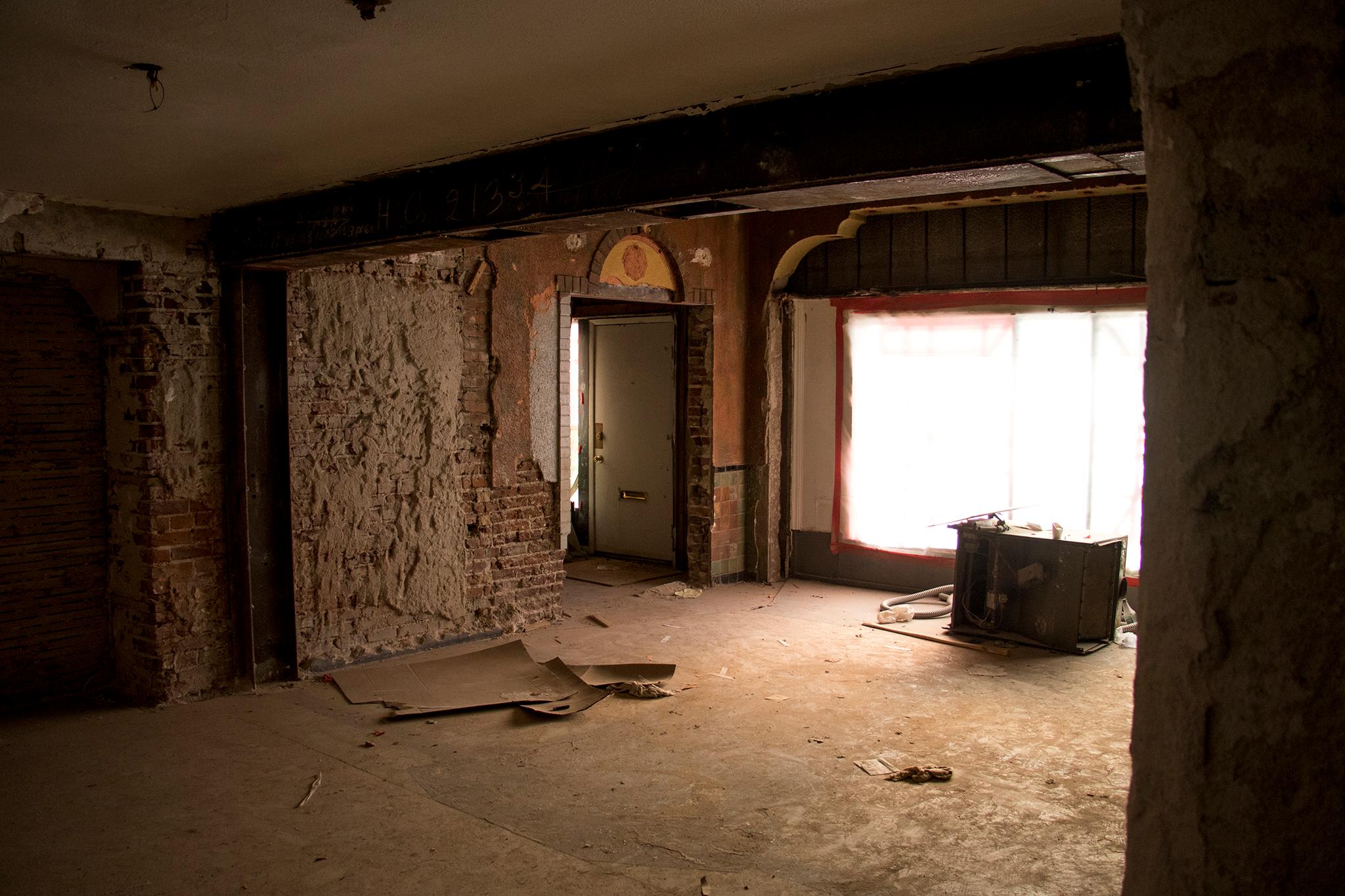
Still, the ambition of this project came as a surprise and they want more information. The problem is that Theil and Wolf don't want to spend the considerable amount of time and money required to move forward with planning until they have a liquor license, but BRUN doesn't want to support the liquor license request until more planning has been done.
It seems like an impasse, but everyone knows how this works.
Theil will continue to provide answers and, as she assured me, has no intention of opening the kind of venue that hosts raves. She also makes it a policy at her venues that security staff need to sweep the neighborhood before they're done for the night. She makes her cell phone number available to neighbors so she can handle complaints herself.
Noyes said "apprehension" is the best word for what the neighbors are feeling but "I don't think we heard people saying 'over my dead body are you going to do this' because they understand the value of that structure within the context of a historic neighborhood."
"If we want to keep the building, we as a neighborhood are going to have to compromise," she said, "and the question is to what degree are people willing to compromise."
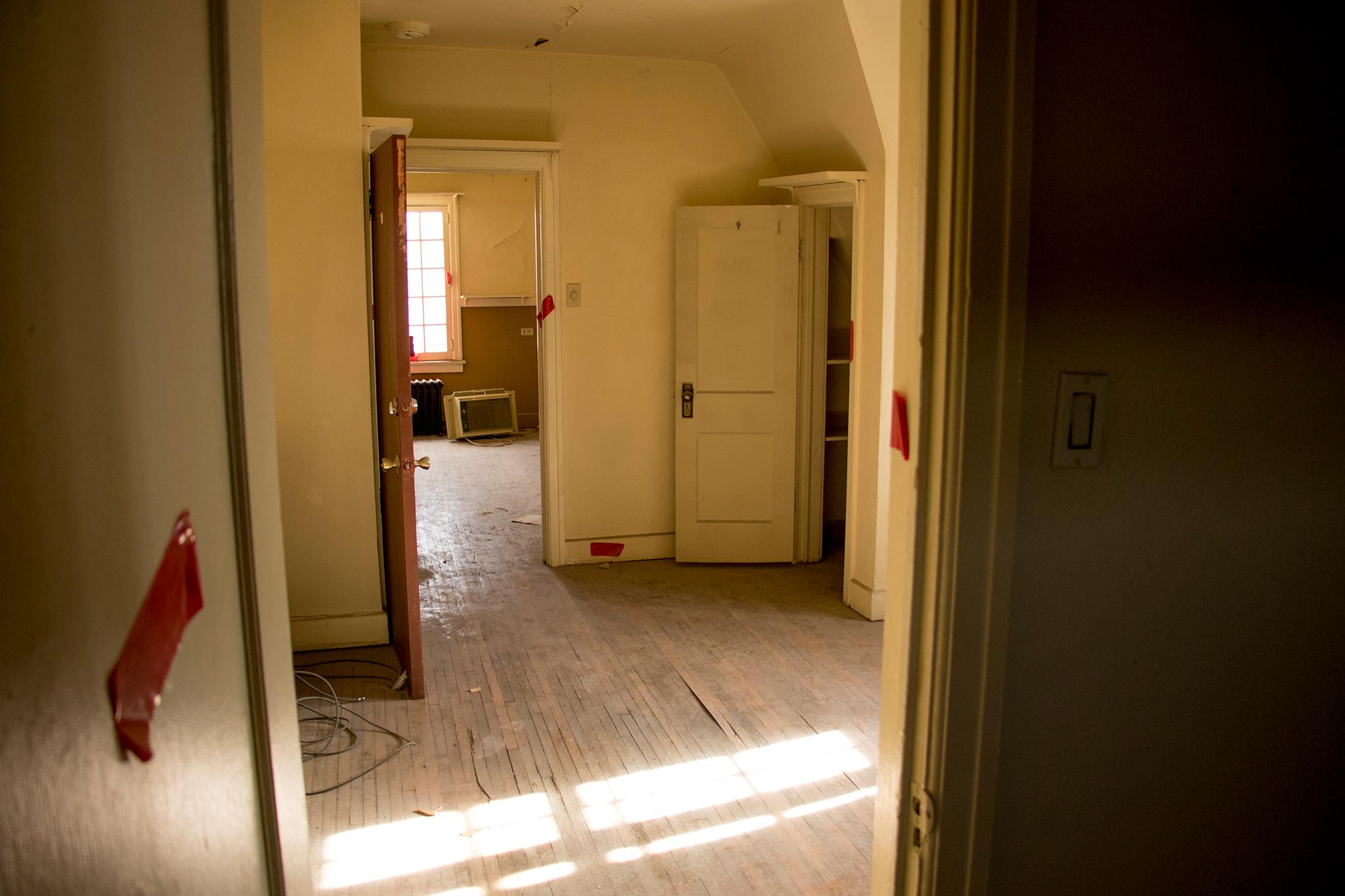
Now what?
"It's going to be a really nice place. We're going to spend a lot of money to fix it up," Theil said.
They still need to work with BRUN to get support for the liquor license. The hearing, according to the sign from the city posted in the window, is scheduled for Dec. 19.
If they're approved, Theil thinks things will move pretty fast. She's hoping they can be done in six months.
Kevin J. Beaty contributed to this report.

